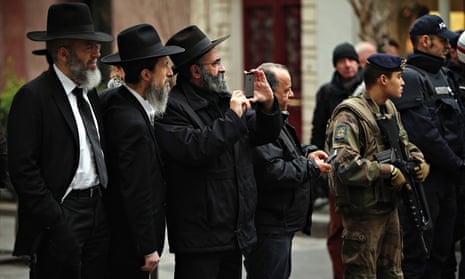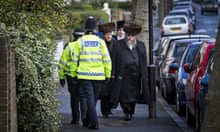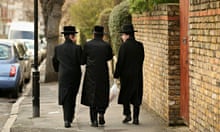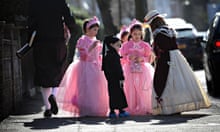The 13 year-old son of my oldest friend had his barmitzvah on Saturday, and a grand, grey Manchester day it was. He recited his piece of the Bible so sweetly, in the venerable Jackson’s Row reform synagogue, then partied in the evening with his mates, mostly not Jewish, surrounded by beaming parents, grandparents and friends.
His dad and I went to school together and for us, like most Manchester boys, football was a big part of growing up; we played together for years and supported City through some rough old times. He is a senior teacher now, and because I can remember his own barmitzvah like it was just a few years ago, I felt that tinge of disbelief at seeing him, every inch the proud father, ushering his boy through the rite of passage.
During such a warm and enjoyable day it felt a little bizarre to contemplate the current news context, the fevered alarm about reportedly rising and dangerous levels of antisemitism. We discussed it in the evening, reflecting that through all we had done from being kids, we had encountered no meaningful antisemitism, ever. Historically, and compared to the terrible hardships people endure in so much of the world, we live in a truly privileged time and place. The very idea that 56% of Jewish people responding to an online survey said they believed antisemitism now “echoes the 1930s” and 58% that Jews have “no long-term future in Europe” we find extraordinary, surreal.
The same organisation, the Campaign Against Anti-Semitism, carried out another survey which posed a series of negative stereotypes and produced the finding that 45% of British adults believe at least one of them. Taken together, following the murder of four Jewish people at the kosher supermarket in Paris and some reported intelligence of an increased jihadi terrorist threat, there is suddenly fear in Britain; perceived antisemitism in the headlines, the home secretary Theresa May scurrying to reassure.
The methodology of the first and conclusions drawn from both surveys have been criticised by the Institute of Jewish Policy Research (IJPR), which argues they were “littered with flaws” and condemning the 1930s claim as “dubious”, “irresponsible” and “incendiary”. Nevertheless, it does seem that some Jewish people, even before the horror of that Paris attack, perceive a threat and level of danger in Britain dramatically at odds with their actual, lived experience.
On Saturday we wondered if we would find armed guards outside the synagogue and alarmist talk within of a palpable threat, reaching back to the persecutions of history. Thankfully there was not. There were volunteers outside – as synagogues have had for years – respecting the need to be vigilant about a terrorist possibility. Inside, the rabbi, Reuven Silverman, mentioned Paris but concentrated more on the Charlie Hebdo massacre, taking the line that while murder can never be justified, free speech and humour have their limits at the point they cause unnecessary offence. His message for the barmitzvah boy was to grow up respecting all people, and to oppose oppression everywhere.
The rabbi told me that he is involved with local imams in initiatives devoted to Jewish-Muslim understanding, which they are reaffirming now. He hears from them that Muslims in Britain can face real, horrendous prejudice, including violence or the threat of it, from which Jews these days are mostly, mercifully, free.
That is not to say of course that antisemitism no longer exists, or that there are not still negative stereotypes about Jews, entrenched over centuries, which linger and will take longer to educate out. But in 2013 the Community Security Trust (CST) recorded its lowest number of antisemitic incidents for eight years, mirroring the long-term decline in prejudice that has been a feature of Europe’s wondrous rebuilding since the second world war.
The CST expects to report more incidents recorded in 2014, principally related to protests against Israel’s military activities in Gaza. Spikes in anti-Jewish sentiment do happen here, the vast majority non-violent, when Israel has mounted operations that have killed Palestinian civilians, including so many children.
That true horror lends another perspective to the good life and peace Jewish people generally are privileged to enjoy in Britain. It feels unreal that people can believe their experience “echoes” the 1930s, which the IJPR said, with some understatement, “most credible scholars of the Holocaust utterly refute”.
This alarm, which seems to some extent to be feeding on itself, can risk seeming a little ungrateful. Not only for a historically remarkable level of acceptance and opportunity but also to our grandparents, who worked, prayed and fought through the 1930s so that we could experience it.








